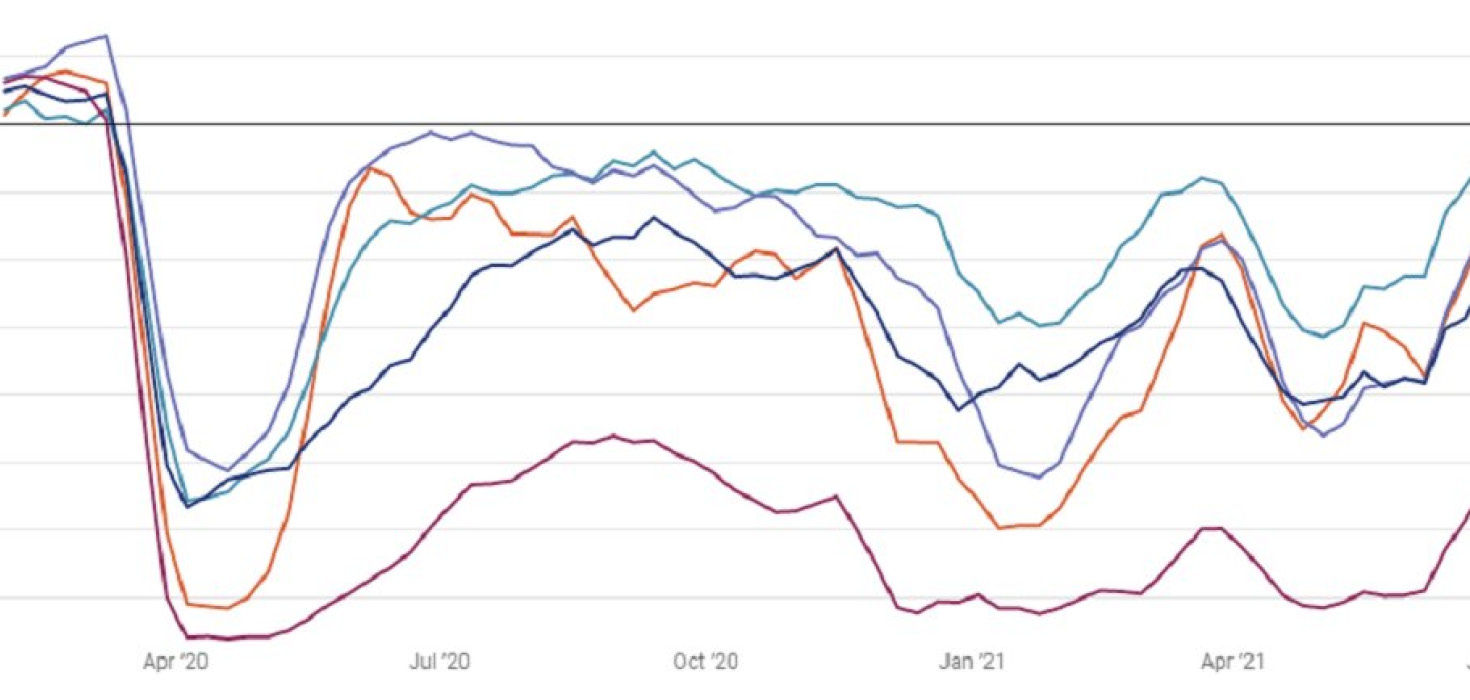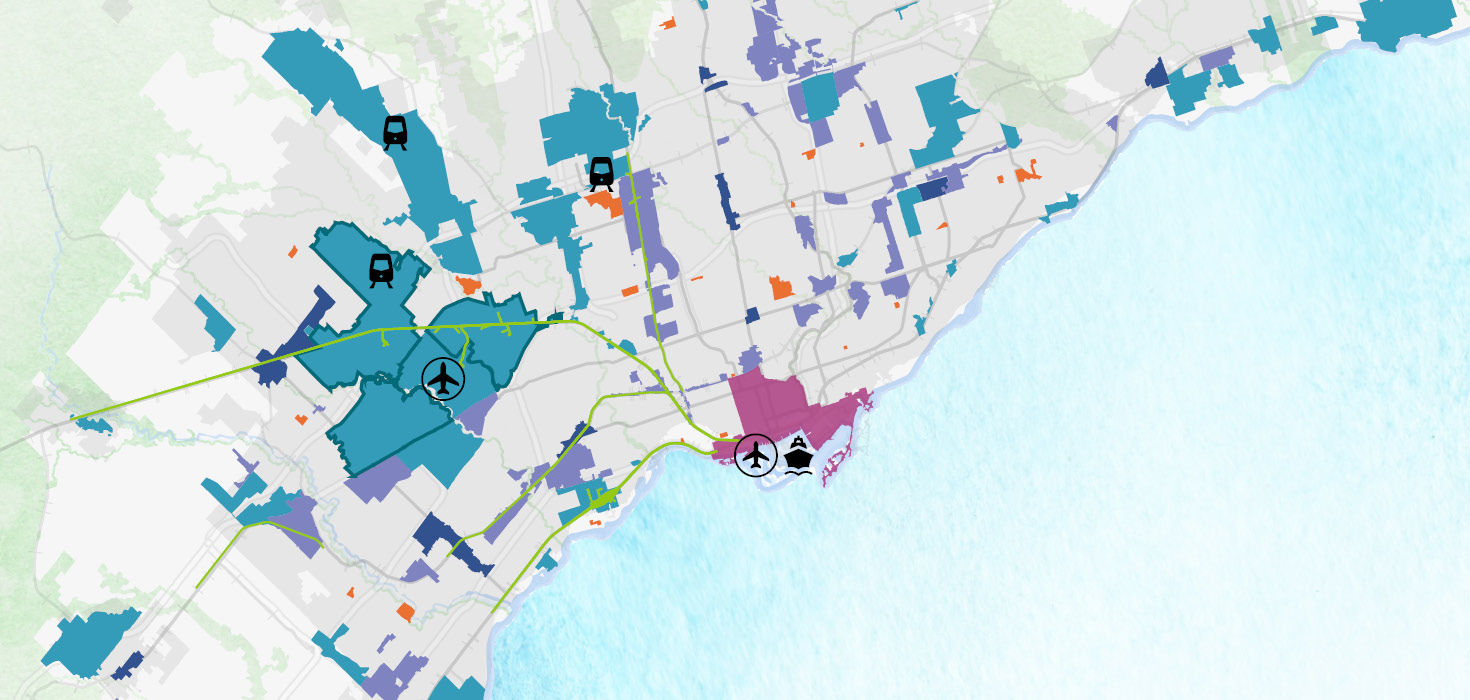Toronto, ON, November 10, 2021 – Almost two years into the pandemic, Toronto’s Financial District remains mostly devoid of workers (77 per cent below 2019 levels) according to the Toronto Region Board of Trade’s Recovery Tracker tool.
The Recovery Tracker now uses de-identified cellphone data from Telus Insights to reveal trends into the movement of workers and visitors in Toronto and across the Innovation Corridor (inclusive of the Greater Toronto, Hamilton and Waterloo regions). The Recover Tracker is able to access worker and visitor movement as they come in and out of key employment areas, known as ‘business districts’. Outside of the Financial District, the lack of workers in Toronto’s larger downtown core is less pronounced (34 per cent below 2019 levels). Across most business districts throughout Toronto, weekday employee volumes are more than 25 per cent below 2019 levels.
“Workers and visitors are critical to the downtown economy in Toronto and in the centre of other cities across the Innovation Corridor,” said Jan De Silva, President and CEO of the Toronto Region Board of Trade. “This new data from Telus backs up what we have been saying all along – that a more complete recovery first requires workers and visitors to have confidence in public health measures, such as transit and at our borders. This is the only way to compel them to return to our city centres at pre-pandemic levels.”
According to the Recovery Tracker’s latest data, unemployment continues to be driven by Toronto and its surrounding suburbs, with almost 25 per cent of unemployed people in Canada living in the region (inclusive of Halton, Peel, York and Durham). This figure is up from 17 per cent in February 2020 – just prior to the pandemic.
The latest data also identifies the sectors with the largest share of employment losses – including transportation and warehousing, accommodation and food and construction. The accommodation and food sector, however, is rebounding significantly and is pegged at 93 p er cent of pre-pandemic employment levels as of October 2021.
After a strong rebound over the summer, in-person consumer spending has started to decline and remains short of 2019 levels in most business districts. However, on a positive note, the Recovery Tracker’s latest data demonstrates that since the Ontario government’s lifting of pandemic restrictions, spending related to transportation and entertainment has surged throughout the Innovation Corridor.
“The Recovery Tracker is a critical tool that will continue to enable the Board to deliver insights into how the Innovation Corridor has been economically impacted by COVID-19, the impacts on different districts across the region, and how they’re recovering,” said Marcy Burchfield, Vice President, Economic Blueprint Institute at the Toronto Region Board of Trade.
“The Tracker is but one part of a broader campaign launched by the Board, called We’re Ready Toronto, that is aimed to empower both employers and employees to facilitate a safe return to work, once the timing is right,” noted Burchfield.
The Toronto Region Board of Trade is one of the largest and most influential business chambers in North America and is a catalyst for the region’s economic agenda. We pursue policy change to drive the growth and competitiveness of the Toronto region and facilitate market opportunities with programs, partnerships and connections to help our members succeed – domestically and internationally.
Media Contact
Andrew Perez, Media Relations Manager
647-290-2171
media@bot.com

